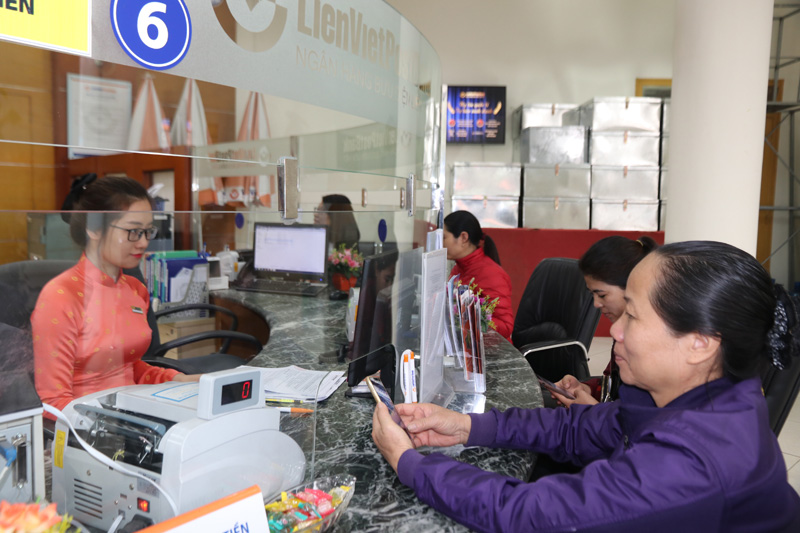
(HBO) – The State Bank of Vietnam’s branch in Hoa Binh has mapped out orientations to direct banks and credit organisations in the northern province to implement key tasks in the field, thus realising the sector’s main monetary targets and contributing to local stability and economic growth.

LienVietPostBank
currently records outstanding loans of over 1.2 trillion VND.
By the end of 2019, the total operation capital of credit institutions in the
province exceeded 26.5 trillion VND, a year-on-year rise of 13.4 percent. Total
outstanding loans in the province surpassed 22.9 trillion VND, up 9.1 percent
against the previous year. Of which, short-term loans accounted for 42.1 percent,
medium-and long-term ones 57.9 percent.
Banks and credit institutions, especially commercial
banks, all saw an increase in outstanding loans, notably joint Stock Commercial
Bank for Investment and Development of Vietnam (BIDV) 13.8 percent, Vietnam joint
Stock Commercial Bank for Industry and Trade (Viettinbank) 8.2 percent,
Military Commercial joint Stock Bank (MB) 17 percent, Lien Viet Post joint
Stock Commercial Bank (LienVietPostBank) 7.3 percent, and Vietnam Prosperity
joint Stock Commercial Bank (VPBank) 1.8 percent.
In 2019, the total bad debts were estimated at
258 billion VND, making up 1.12 percent of the total outstanding debts, down
157 billion VND compared to 2018.
Banks and credit organisations have worked out
measures to remove difficulties for businesses and pay attention to investment
in local economic development. They have also actively carried out preferential
credit programmes and provided loans for poor households and social welfare
beneficiaries in prioritising fields as directed by the State Bank of Vietnam such as
rural and agriculture.
In 2020, the provincial State Bank of Vietnam branch
strives to increase the mobilisation of capital by 16 percent or more. Outstanding
loans are estimated to climb by 14 percent while the ratio of bad debts below 3
percent./.
According to data from the Hoa Binh Provincial Party Committee, the industrial production index for the first six months of 2025 is estimated to have increased by 20% compared to the same period last year. This marks the highest year-on-year growth rate for this period since 2020.
In the first six months of 2025, Hoa Binh province’s export turnover was estimated at 1.145 billion USD, marking an 18.11% increase compared to the same period in 2024. Import turnover was estimated at $ 804 million, a 17.15% increase, which helped the province maintain a positive trade balance.
The lives of the ethnic minority farmers in Tan Lac district have gradually improved thanks to the new directions in agricultural production. This is a testament to the collective strength fostered through the professional associations and groups implemented by various levels of the district’s Farmers’ Union.
With the motto the "product quality comes first,” after nearly one year of establishment and operation, Muong village’s Clean Food Agricultural and Commercial Cooperative, located in Cau Hamlet, Hung Son Commune (Kim Boi district), has launched reputable, high-quality agricultural products to the market that are well-received by consumers. The products such as Muong village’s pork sausage, salt-cured chicken, and salt-cured pork hocks have gradually carved out a place in the market and they are on the path to obtaining the OCOP certification.
In the past, the phrase "bumper harvest, rock-bottom prices" was a familiar refrain for Vietnamese farmers engaged in fragmented, small-scale agriculture. But today, a new spirit is emerging across rural areas of Hoa Binh province - one of collaboration, organisation, and collective economic models that provide a stable foundation for production.
Maintaining growing area codes and packing facility codes in accordance with regulations is a mandatory requirement for agricultural products to be eligible for export. Recently, the Department of Agriculture and Environment of Hoa Binh province has intensified technical supervision of designated farming areas and packing facilities to safeguard the "green passport" that enables its products to access international markets.



